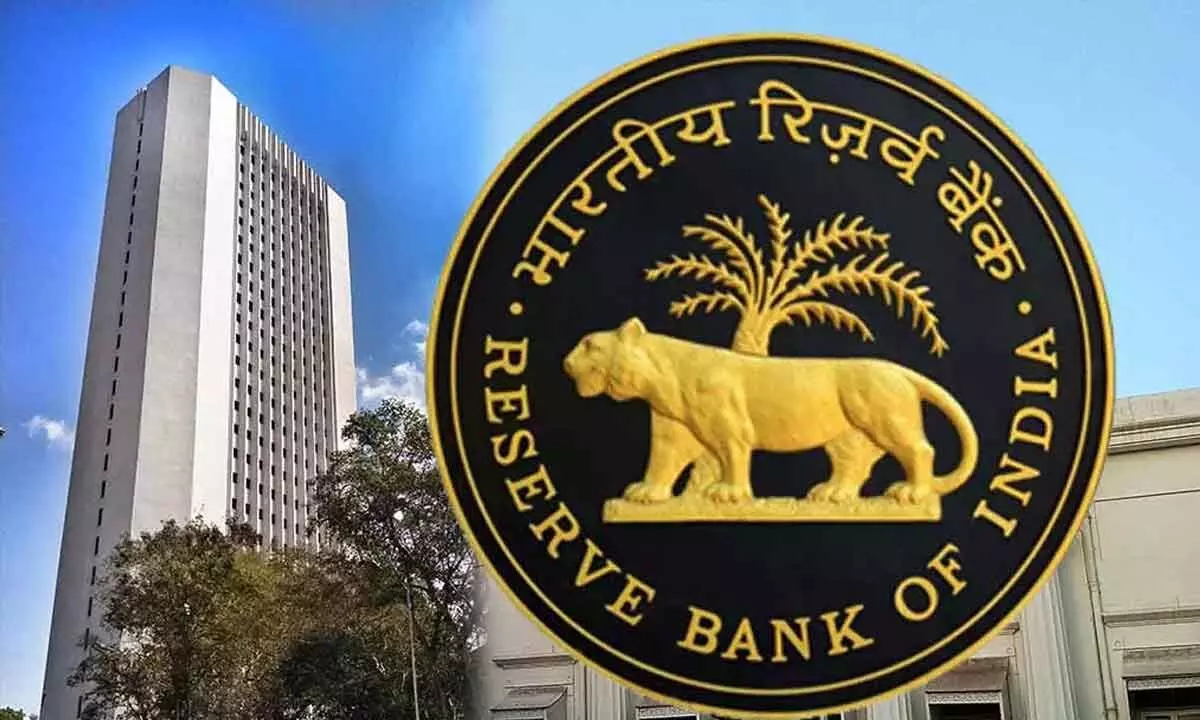25bps repo rate hike more likely this time
Since May 2022, RBI increased short-term lending rate by 225 basis points to contain inflation, mostly driven by external factors; RBI's rate-setting panel, MPC, will start its 3-day deliberations on the next set of monetary policy today and decision will be announced on Feb 8
image for illustrative purpose

Mumbai: With retail inflation showing signs of softening and the US Fed moderating the pace of increase in its benchmark interest rate, Reserve Bank of India (RBI) is likely to settle for a smaller 25 basis points repo rate hike in its forthcoming bi-monthly monetary policy due later this week.
In its December monetary policy review, the central bank had raised the key benchmark interest rate (repo) by 35 basis points (bps) after delivering three back-to-back increases of 50 bps.
Since May last year, the Reserve Bank increased the short-term lending rate by 225 basis points to contain inflation, mostly driven by external factors, especially global supply chain disruption following the Russia-Ukraine war outbreak.
RBI's rate-setting panel - Monetary Policy Committee (MPC) - will start its three-day deliberations on the next set of monetary policy on Monday. The decision will be announced on February 8. Kotak Institutional Equities in a report said the global inflation environment is gradually turning benign although inflation is still well above every central bank's target. Inflation will likely moderate further in the next few months, leading to the end of the rate hiking cycle by first half of 2023 and possible rate cuts in late-2023/early-2024.
"However, given large global uncertainties, central banks' levers for supporting growth through monetary easing remain limited, thereby risking higher rates for an extended period. We expect the RBI MPC to hike policy rate by 25 bps to 6.5 per cent, followed by a prolonged wait-and-watch approach, as it assesses the lagged impact of monetary tightening on growth and inflation," it said.
The RBI has been tasked to ensure that retail inflation remains at four per cent with a margin of two per cent. However, it failed to keep the inflation rate below six per cent for three consecutive quarters beginning January 2022. However, the retail inflation based on the Consumer Price Index (CPI) has shown signs of moderation in November and December as it fell below the RBI's upper tolerance level of 6 per cent. On his expectations from the MPC, Dhruv Agarwala, Group CEO, Housing.com said amid projections of slower growth than previously forecasted for 2023-24, the RBI will probably stick to a moderate increase in its benchmark lending rate in the upcoming policy announcement, before hitting a pause button on hikes later in 2023.
"The move is likely to have limited impact on real estate demand as home purchase decisions are driven and determined by several factors other than just home loan rates. That said, borrowers would feel the pinch of this increase in rates as home loan EMIs for existing and new loans would go up," he said.
Amita Vaidya, director, Sarla Anil Modi School of Economics, NMIMS Mumbai too said the monetary policy committee may ease its monetary tightening stance. "However, the downside of global economic outlook continues. Domestic economy is showing an uptick and resilience. Food inflation continues to have increased pressure from high cereal prices. Thus RBI may remain focused on withdrawal of accommodation and raise the policy rate by 25 basis points," she said.
On the other hand, Ranen Banerjee, Partner and Leader, Economic Advisory Services at PwC India said with the US Fed bringing down the quantum of increase to 25 bps, CPI within the tolerance range of RBI, yield differentials between US and India increasing to around 3.75 percentage points, sluggish exports and need to keep borrowing costs low for government and the private sector, the MPC does not have many reasons for a further rate hike.
RBI readies draft bill for NFIR
Aims at improving accessibility, affordability of loans: DEA Secy Ajay Seth
Economic Affairs Secretary Ajay Seth has said that the Reserve Bank of India (RBI) has prepared a draft Bill for setting up a National Financial Information Registry (NFIR) with a view to improve accessibility and affordability of loans. The proposal to set up a credit repository was discussed by Finance Minister Nirmala Sitharaman at the meeting of the Financial Stability and Development Council in September, he said. The Reserve Bank has already prepared the draftbill, which is currently being deliberated upon, Seth told in a post-budget interaction. The objective is to build a public infrastructure for credit-related information and right information can be made available by the NFIR to lending agencies. A National Financial Information Registry will serve as the central repository of financial and ancillary information. This will facilitate efficient flow of credit, promote financial inclusion, and foster financial stability, the Finance Minister had announced in her first Budget speech. A new legislative framework will govern the proposed credit public infrastructure, and it will be designed in consultation with the RBI, she had said. Apart from having information about loans, Seth said, the proposed NFIR would be a repository for ancillary information like tax paid, electricity consumed pattern etc.

